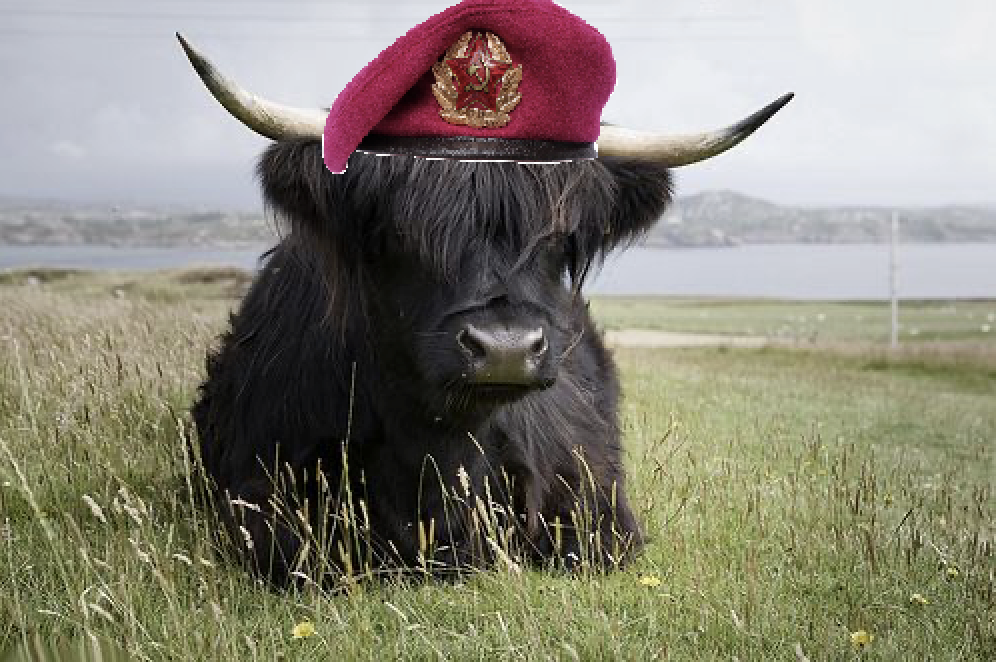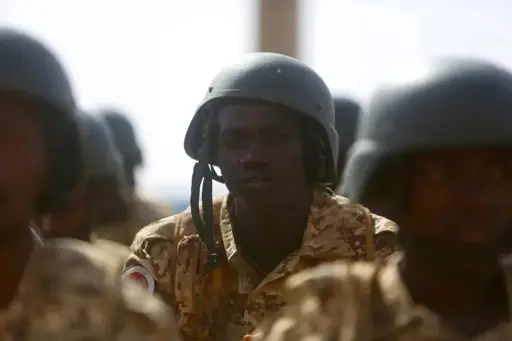The Second Sudanese Civil War was a conflict that took place between 1983 and 2005 between the central Sudanese government and the Sudan People’s Liberation Army . It was largely a continuation of the First Sudanese Civil War of 1955–1972. Although it originated in southern Sudan, the civil war spread to the Nuba Mountains and the Blue Nile region.
Between the north and the south lie significant oil fields and, consequently, substantial foreign interests ( oil revenues are privatized for Western interests, as in Nigeria ). Northerners sought to control these resources because they live on the edge of the Sahara Desert, which is unsuitable for agriculture.
Oil revenues account for approximately 70% of Sudan’s export earnings. Due to the numerous tributaries of the Nile River and higher rainfall in South Sudan, the region has greater access to water and more fertile land.
There have also been a significant number of deaths from intertribal warfare in the south . Most of the conflict has been between the Nuer and the Dinka , but other ethnic groups have also been involved. These tribal conflicts continued after South Sudan’s independence.
Finally, the self-styled “Friends of Sudan” (the US, Norway, and the UK) imposed the Naivasha Agreement , which led to the secession of South Sudan in 2011 , a country that is now under a de facto protectorate of the US and Israel .
This war, fueled by local rivalries but instigated by Israel and financed by the United States , created a buffer state to keep Israel’s neighbors at bay . In the 1950s and 1970s, Israel sought to create or annex states in southern Lebanon (south of the Litani River), western Syria (the Golan Heights) , and Egypt ( Mount Sinai ) in the name of its “right to security.”
The Israel-United States partnership: An analysis of geopolitical influence in Sudan
The relationship between Israel and the United States has been marked by strategic interests that have allowed both nations to influence various conflicts in the Middle East and Africa . As global dynamics evolve, Israel has adapted its approach, seeking to establish proxy states in key areas that can act as counterweights to its neighbors.
With the proliferation of medium-range missiles in the region, Israel has opted to foster the creation of states that can serve as allies. The creation of South Sudan in 2011 is an example of this strategy, as are the attempts to establish a Kurdistan in Iraq in 2017 .
It has long been clear that the path to peace in Sudan runs through Egypt, Saudi Arabia, and the United Arab Emirates : the three closest Arab allies of the United States. But last month, Israeli Prime Minister Benjamin Netanyahu reminded the Sudanese that he, too, has interests in their country.
One of the goals of the Israeli government is to use South Sudan as a destination for displaced Palestinians, even as a place of exile for members of Hamas, an extreme that the Palestinian organization and the government of Sudan have denied.
In his speech to the UN General Assembly in September, Netanyahu caused a stir among Sudanese by displaying two maps: “The Curse” and “The Blessing.” On the first, Israel’s sworn enemies— Iran, Iraq, Lebanon, Syria, and the Houthis in Yemen —were marked in black. On the second, its friends appeared in green, including Egypt, Saudi Arabia, the United Arab Emirates, and Sudan.
Al-Burhan’s deputy at the time, General Mohamed Hamdan Dagolo, known as “Hemedti ,” also had close ties to Israel. He developed close relations with the United Arab Emirates, hiring its Rapid Support Force (RSF) units to fight as mercenaries in Yemen, where he also established strong links with the Israeli Mossad .
Normalization of relations and US support
In this context, the normalization of relations between Sudan and Israel was finalized in 2020 when Israeli Prime Minister Benjamin Netanyahu met with General al-Burhan in Entebbe, Uganda. This meeting was facilitated by US intervention, which led the Sudanese transitional government to acknowledge the Bashir regime’s role in the 1998 al-Qaeda attacks . As a result, Sudan received a significant influx of funds to support its political transition.
Internationally, the UN took significant steps in 2021 by withdrawing its peacekeeping forces from Darfur and establishing a Transitional Assistance Mission (TAM).
The Rapid Support Forces , also known as RSF or FAR , are Sudanese paramilitary forces that emerged from and are composed mainly of the Janjaweed militias , who fought on behalf of the Sudanese government during the Darfur conflict and were responsible for numerous atrocities against civilians.
The Rapid Support Forces participated in 2019 with 1,000 soldiers in Libya , and in the Saudi- led intervention in Yemen alongside Saudi and Emirati forces.

- The Horn of Africa is a vast peninsula made up of all the countries of Somalia , Djibouti , Eritrea and Ethiopia , where the Red Sea connects with the Indian Ocean, which is of particular interest to European powers and the USA because of its strategic location, a mandatory route for oil tankers and cargo ships.
US influence and the role of Jeffrey Feltman
The Biden administration played a crucial role in this process by appointing Jeffrey Feltman as special representative for the Horn of Africa . Feltman, a key figure in US politics, has been involved in various initiatives in the region. His mission in Khartoum included warning that Western financial support was contingent on the country’s unity, highlighting the interdependence between political stability and foreign aid.
However, the situation turned critical when General al-Burhan and Hemidti pushed for a change of government without removing Prime Minister Abdallah Hamdok. This maneuver was seen as an attempt to rebalance tribal power in Sudan, leading to swift international condemnation following the announcement of a military coup.
The coup triggered a suspension of financial aid from the United States, the World Bank, and the IMF, exacerbating an economic crisis that was already threatening the country’s viability. Despite international condemnation, regional actors such as Saudi Arabia and the United Arab Emirates maintained an ambiguous stance on their financial support, while Turkey sought to expand its influence by leasing Suakin Island to establish a military base.
United Arab Emirates, a sub-imperialist power
A sub-imperialist country is one that, without being a major imperialist power, acts in the same way as imperialist powers and behaves in its region like an imperialist power . And precisely, the war that has ravaged Sudan since April 2023 is not just a Sudanese tragedy.
Sudan is a manifestation of a world order in which financial interests, military influence, and strategic affiliations matter more than the lives of the population and democratic aspirations. At the heart of this arrangement are the United Arab Emirates .
The role of the United Arab Emirates in Sudan is not an anomaly. It is part of a coherent, well-funded, and regionally significant project: a sub-imperialist policy that combines economic extraction, the building of authoritarian alliances, and counterrevolution, under the guise of sophisticated diplomacy and international partnerships. Sudan, unfortunately, is one of its main testing grounds.
In Egypt , they financed the coup that brought Abdel Fattah al-Sisi to power and helped rebuild Egypt’s repressive apparatus. In Libya , they supported Khalifa Haftar’s war against the internationally recognized government, a war that led to the de facto division of the country. And in Sudan , the Emirates forged close ties with the regime of Omar al-Bashir and, in the following years, strengthened their alliance with the Rapid Support Forces (RSF) .
Over the past fifteen years, the Emirates have expanded their economic presence in Africa through investments in ports, airports, and infrastructure projects . These initiatives not only serve economic interests but also expand the country’s influence.
The Emirates have signed major military cooperation agreements and made significant investments in agricultural land, renewable energy, mining, and telecommunications , making them a key player in regional geopolitics that remains dependent on the United States .
Barbarity
Khartoum, the capital of the African republic of Sudan, is a city of 700,000 inhabitants, which is experiencing a war that pits the troops of the Commander-in-Chief of the Army, General Abdel Fatah Burhan, against those of the Commander of the Rapid Action Force, General Mohammed Hamlan Dagalo .
General Burhan had accepted Washington’s demand to cut off all support for the Palestinian cause and to sever diplomatic relations with Iran . In other words, he had committed the Sudanese government to being an ally of Washington and Israel against Saudi Arabia, Iran, and Palestine, and to serving as a spearhead for the North Atlantic Treaty Organization (NATO) in the very heart of East Africa.
The World Health Organization (WHO) denounced the killing of around 460 patients in a hospital in the city of El Fasher , in western Sudan, and in that sense countries from the Middle East and the European Union (EU) demanded that the paramilitary Rapid Support Forces (RSF) stop the violence against civilians in that city.
The chaos generated
More than 12,000 dead during 2024, more than twelve million displaced, some 18 million people going hungry and 25 million in need of humanitarian aid, is the tragic toll that Sudan is experiencing today.
The war that has been raging since 2023 between the national army and the paramilitary Rapid Support Forces (RSF) has turned this northeast African country into the world’s largest internally displaced persons crisis and is leading it to the “greatest hunger crisis ,” according to the World Food Programme (WFP).
The consequences of war in a state slightly larger than the combined size of Spain, Portugal, France, Italy, and Germany will also cause disruptions throughout the region. Neighboring countries, already stretched to their limits, have had to provide refuge to nearly two million people fleeing the war.
The relationship between Israel and the United States in the Sudanese context illustrates how power dynamics in the Middle East and Africa are deeply intertwined . As both countries seek to expand their influence and establish allied governments, the future of Sudan and its people hangs in a precarious balance, with national sovereignty at risk from external interests .



If you are referring to the African Union and/or the neighboring countries like Egypt, the answer is in this other article that I posted:
“Mahmoud Ali Youssouf’s condemnation fits into a familiar pattern of statements that express deep concern but avoid any real intervention or accountability mechanisms. In theory, the African Union possesses the legal and institutional tools to act, including the Peace and Security Council and the African Standby Force, yet these mechanisms remain inactive due to political fragmentation, lack of funding, and the influence of powerful member states that prioritize sovereignty over justice,” he said.
The African affairs analyst noted that many African leaders hesitate to confront Sudan’s warring factions because several of their own regimes face similar accusations of repression and human rights abuses, and taking a firm stance on Sudan would invite scrutiny of their own actions.
He added that there is also a dependence on Persian Gulf and Western funding that undermines the AU’s autonomy, as the UAE, Saudi Arabia, and the EU all provide substantial financial support, which limits its willingness to challenge those fueling the war.
“In short, beyond condemnations and appeals for dialogue, the African Union has done little to protect Sudanese civilians. Its inaction exposes a deeper crisis of legitimacy — an institution built to defend African lives now seems paralyzed by political caution and external dependence,” Diallo stated.
Is the west bankrolling the rsf?
The UAE is smuggling funds and weapons towards the RSF, so in a sense the west, by supporting the UAE, is funding this.
I think I read directly funding, but so much is happening I can’t keep up.